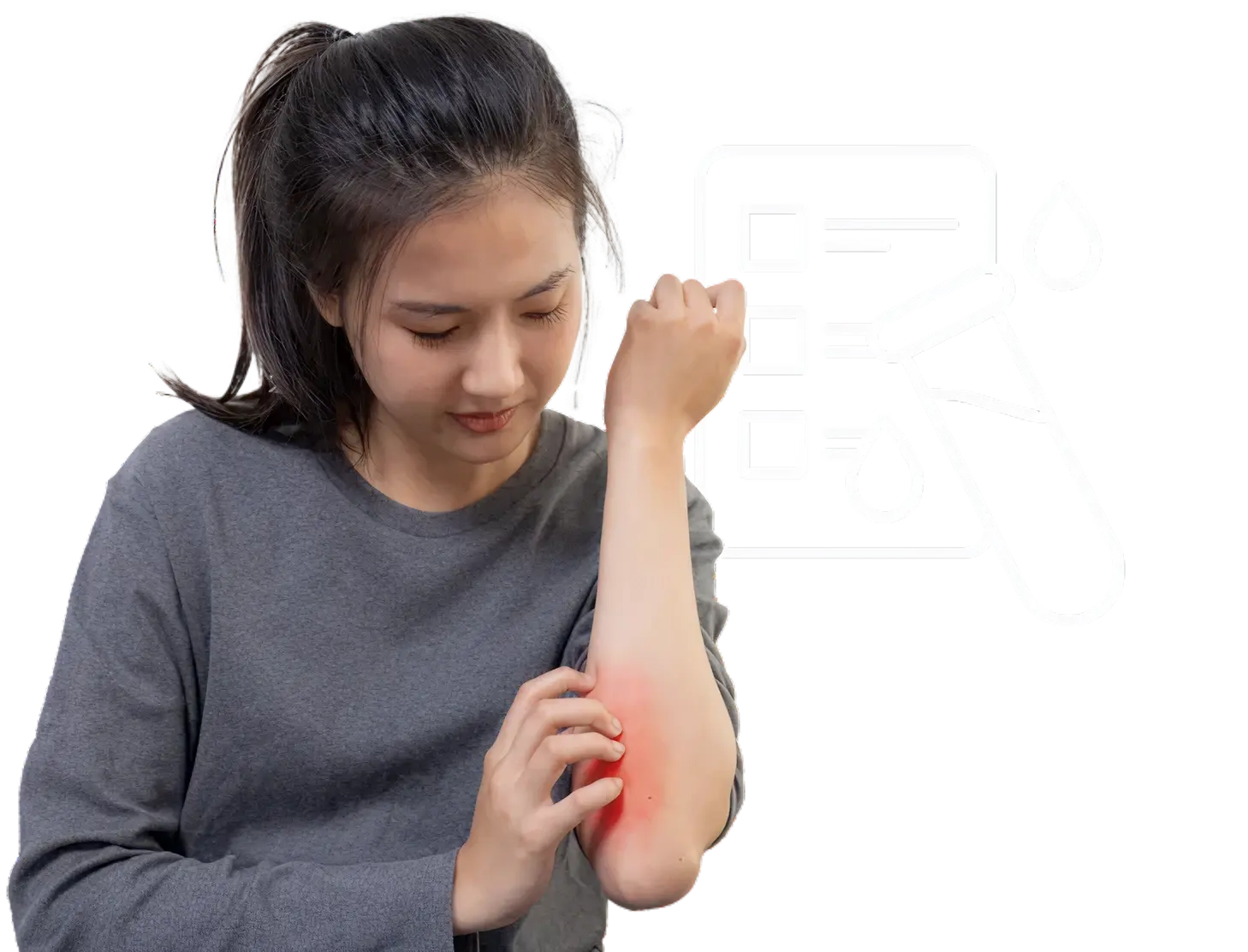What is food allergy?
Food allergy is basically an immune system reaction that occurs soon after eating a certain type of food. It happens when our immune system mistakes an ingredient in food as a harmful invader known as an allergen. Allergens usually don’t always trigger reactions among most individuals however for those suffering from certain food allergies, their immune systems will wrongly consider the allergen to be a potential threat and mount an inappropriate response which creates antibodies to fight it. And when this takes place in the body it will be known as an allergic reaction.
An allergic reaction can cause various undesirable effects on the organs in our body.
Skin allergies usually result in swellings over body areas such as the face, mouth, lips, eye, chest, hands or legs. These areas may also occur rashes that appear nettled-like (hives) or resemble eczema.
In the gastrointestinal tract, one can develop symptoms such as abdominal pain, cramps & diarrhoea or feeling nausea followed by vomiting.
In extremely severe cases, the affected individual may develop a full-blown severe allergic reaction that can be potentially dangerous leading to a life-threatening situation if it is not treated on time. This condition is medically known as anaphylaxis. When this happens, one may be presented with an acute difficulty in breathing, a drop in blood pressure, experience undesirable symptoms such as rashes all over the body area, and swelling on the eyes, lips, throat, and mouth. In such situations, heading to the nearest hospital to seek medical attention immediately will be the correct course of action and the best option.
When is food intolerance?
Food intolerance is caused by the absence of an enzyme needed to fully digest certain food which doesn’t involve the immune system but only the digestive system and hence usually it is not life threatening. The symptoms of food intolerance are also generally less serious and take a longer time to emerge, compared to food allergies. Some common food intolerance reactions are feeling nausea, stomach pain & discomfort, gas, cramps or bloating, heartburn, diarrhoea, headaches and even fatigue.
Why is doing a food allergy test is important?
Even with the great advancement in medical science as of now, basically there is still no cure for food allergies. The only course of action that could be done is just an avoidance of food allergens that could lead to an allergic reaction. Hence early recognition and management of allergic reactions to food will be important measures to prevent serious health consequences.



